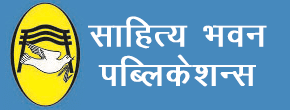The book has been prepared strictly according to the new syllabus for B.Com. Semester I and II effective from academic session 2023-2027 for Various Universities of Jharkhand.
It gives us immense pleasure to present the revised and enlarged edition of the book on Business and Management and Organisation.
In the book, we have maintained the earlier pattern and style of the book which has been appreciated and lauded over the past so many years. The latest references have also been incorporated making it an
authoritative and a very valuable book for the students.
Chapters on Joint Stock Companies are updated on the basis of the Companies Act, 2013 (as amended upto 2022).
The unique feature of the book is that each and every topic of the syllabus prescribed in the new syllabus has been covered in the book.
Business Organisation and Management Syllabus For B.Com. Ist Semester (Minor Course) of Kolhan University, Vinoba Bhave University & B.Com. IInd Semester (Major Course) of Ranchi University, Nilamber Pitamber University, Binod Bihari Mahto Koyalanchal University
- Unit I : Concept and Forms of Business Organisations 1. Concepts of Business, Trade, Industry and Commerce-Objectives and functions of Business. 2. Social Responsibility of a business, Responsible Business, Ethical Conduct & Human Values, code of business ethics. 3. Forms of Business Organisation-Meaning, Characteristics and types. 4. Sole Proprietorship-Advantages and Disadvantages of Sole Proprietorship. 5. Partnership-Meaning, Characteristics, Advantages and Disadvantages of Partnership-Kinds of Partners – Partnership Deed. 6. Registration of partnership, Rights and duties of Partners, Reconstitution of Firm, and dissolution. 7. Limited Liability Partnership-Concept, Meaning, Characteristics, Formation and Incorporation of LLP, Partners and their relations, financial disclosures, conversion into LLP, Foreign LLP, Winding up and dissolution. 8. Hindu Undivided Family Business-Advantages and Disadvantages. 9. Co-operative Organisation-Meaning, Advantages and Disadvantages.
- Unit II : Joint Stock Company 1. Joint Stock Company-Meaning, Definition, Characteristics – Advantages and Disadvantages. 2. Kinds of Companies. 3. Promotion-Stages of Promotion-Promoter-Characteristics-Kinds-Preparation of Important Documents-Memorandum of Association-Clauses-Articles of Association-Contents– Prospectus-Contents–Red herring Prospectus Statement In lieu of Prospectus (as per
Companies Act, 2013). 4. Oppression, Mismanagement, Rights to apply, Powers of Tribunal, Provisions related to Compromises, Arrangement and Amalgamations, Winding up of Company : Concept and Modes of Winding Up; Provisions of winding up under Insolvency and Bankruptcy Code, 2016.
5. Definitions; Constitution of National Company Law Tribunal; Constitution of Appellate Tribunal; Appeal from orders of Tribunal; Power to punish for contempt. - Unit III : Principles and Functions of Management 1. Management-Meaning and Characteristics. 2. Fayol’s 14 Principles of Management. 3. Functions of Management. 4. Levels of Management–Skills of Management. 5. Scientific Management-meaning, objectives, relevance and criticism.
- Unit IV : Functions of Management: Planning and Organizing 1. Planning-Meaning, Characteristics, Types of Plans, Advantages and Disadvantages– Approaches to Planning-Management by Objectives (MBO)-Steps in MBO-Benefits– Weaknesses. 2. Organizing-Process of Organizing; Principles of Organisation – Formal and Informal Organisations–Line, Staff Organisations, Line and Staff Conflicts. Functional Organisation. 3. Span of Management-Meaning – Determining Span – Factors influencing the Span of Supervision.
- Unit V : Functions of Management: Authority, Coordination, and Control 1. Meaning of Authority, Power, responsibility and accountability – Delegation of Authority- Decentralization of Authority. 2. Definition, importance, process, and principles of Coordination techniques of Effective Coordination. 3. Control-Meaning, Relationship between planning and control, Steps in Control–Types (post, current, and pre-control). Requirements for effective control.
- Unit VI : Functions of Management: Communication, Motivation and Leadership 1. Communication-purpose, process, formal and informal communication, barriers to effective communication and overcoming these barriers. 2. Motivation-Meaning, importance, major motivation theories- Maslow’s need hierarchy theory, Herzberg’s two-factors theory, Vroom’s Expectation Theory, extrinsic and intrinsic motivation. 3. Leadership-meaning, theories, essential qualities, global leadership attributes, practicing leadership.
Contents:
- Management Practices In Indian ‘Vedas’
- Management (Concept, Characteristics, Nature, Process And Significance)
- Managerial Roles (Mintzberg)
- Functional Areas Of Management
- Development Of Management Thought (Classical And Neo Classical System; Contingency Approach, System Approach)
- Planning
- Planning Process
- Types Of Plans
- Decision-Making
- Management By Objectives
- Organisation And Departmentation
- Authority And Responsibility Relationships
- Centralisation And Decentralisation
- Organization Structure : Forms
- Direction : Concept And Techniques
- Co-Ordination As An Essence Of Management
- Communication (Nature, Process And Networks)
- Barriers To Communication
- Effective Communication
- Management Of Change (Process For Planned Change)
- Recruitment And Selection
- Controling
- Motivation
- Leadership
- Leadership Theories
- Delegation Of Authority
- Business : Concept, Meaning And Features
- Promotion Of Business (Considerations In Establishing New Business)
- Forms Of Business Organisation And Sole Proprietorship
- Partnership (Including Limited Liability Partnership)
- Joint Stock Company And One Person Company
- Co-Operative Organisation
- Social Responsibility Of Business
- Promotion Of A Company
- Memorandum Of Association
- Articles Of Association
- Prospectus
- Prevention Of Oppression And Mismanagement
- Compromises, Arrangements And Amalgamations
- Winding Up Of Companies
- National Company Law Tribunal And National Company Law Appellate Tribunal
- Functions Of Management
- Levels Of Management Or Managerial Hierarchy


















Reviews
There are no reviews yet.